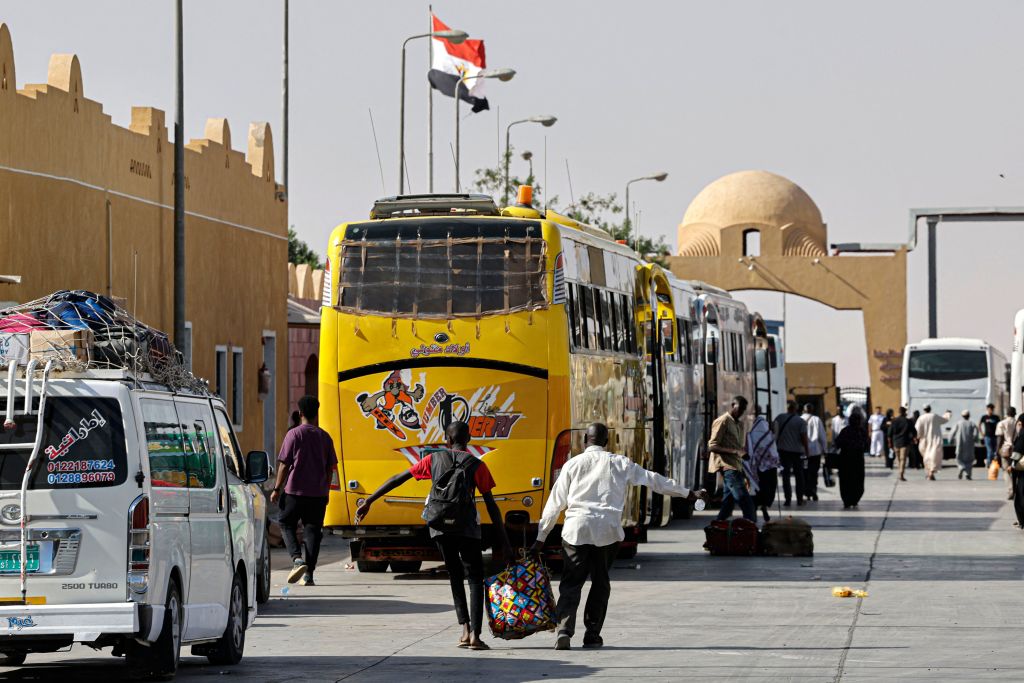ADF STAFF
As fighting continues in Sudan, it is not just the Sudanese people who are fearful for their future. The entire region is anxiously watching the developments. The mass exodus of refugees and the threat that the conflict could spill across borders make this a particularly perilous time for the Horn of Africa and Red Sea region.
“The risk of a regional spillover is high given Sudan’s geostrategic importance at the intersection of the Indian Ocean, Horn of Africa and Arab world,” wrote Miriam Berger for The Washington Post. “From seven sides, Sudan’s neighbors are watching.”
Egypt: The two Nile River countries share deep cultural, economic and diplomatic ties. An estimated 5 million Sudanese people lived in Egypt before the conflict began. That number has grown with about 87,000 refugees streaming across the border since the outbreak of fighting on April 15.
Egypt joined with Sudan to oppose Ethiopia’s Grand Ethiopian Renaissance Dam (GERD), a massive Nile River hydroelectric project which Egyptian leaders have described as an “existential threat” due to its possible impact on their clean water supply. Egypt does not want to lose Sudan as an ally in defending its water rights.
“There are growing concerns in Egypt that the instability in Sudan may overshadow or even derail the negotiations with Ethiopia,” wrote Shahira Amin, a senior fellow at the Atlantic Council think tank.
Egypt’s government has close ties to Gen. Abdel Fattah al-Burhan, the head of the Sudanese Armed Forces, and reportedly believes his leadership is best for long-term stability. Egyptian President Abdel Fattah el-Sisi has offered to mediate the conflict but has not made many statements other than to condemn the detention of 27 Egyptian Air Force personnel by Sudan’s Rapid Support Forces. The troops, who el-Sisi said were not a party to the conflict, were later released.
“While the Egyptian leadership has insisted it is not taking sides in the conflict, Cairo is watching the developments in Sudan with trepidation,” Amin wrote. “The unfolding crisis may have far-reaching implications for its northern neighbor.”
Ethiopia: The most populous nation in the region, Ethiopia is trying to hold together a fragile peace following its own two-year civil war. Ethiopia hosts 900,000 refugees and an estimated 3 million internally displaced people. It also faces acute food insecurity in the north of the country and aid workers fear any disruption to relief supplies.
Ethiopia has clashed with Sudan in recent years over the GERD as well as a disputed border territory known as al-Fashaga. There are fears that ethnically aligned Amhara militias in Ethiopia could use the opportunity to try to reclaim land from Sudan, setting off a conflict between the two nations.
“The Sudanese Armed Forces, as Sudan’s national army, would be obliged to respond to threats to the country’s territorial integrity,” Jonas Horner, an analyst, told Al Jazeera.
Eritrea: One of the continent’s most repressive states, Eritrea has reportedly taken advantage of the conflict to forcibly repatriate some of its citizens who lived just across the border in Sudan. An estimated 186,000 Eritrean refugees live in the country and many of them are political dissidents.
According to Eritrean human rights activists, operatives for the Eritrean government have entered Sudan and forced some refugees to board buses and return to the country where they face imprisonment.
“The Eritrean regime is brutal,” an Eritrean activist told The Guardian. “I am worried that some of them will disappear forever.”
Libya: Eastern Libya is the base of operations for Field Marshal Khalifa Haftar and Russia’s Wagner Group mercenaries. Both groups are reportedly supporting Sudanese Gen. Mohamed Hamdan Dagalo, the leader of the Rapid Support Forces (RSF) who is known as Hemedti. According to Atlantic Council reporting, this support includes ammunition and missile deliveries as well as intelligence sharing. Haftar’s son Saddam is overseeing an effort to supply RSF forces with thousands of barrels of oil per day.
Analysts say Libya could serve as a rear base for RSF fighters which would threaten to further internationalize the conflict. “Libya is a major black market logistics hub — for weapons, food, fuel, fighters, fresh dollars — and, thus, an ideal base to launch attacks,” wrote Alia Brahimi, a senior fellow in the Atlantic Council’s Middle East Programs. “If Hemedti retreats from Khartoum to Darfur, tribal fighting within the Darfur region and the collapse of the peace deal there threatens to pull Libya into a regional conflagration.”

